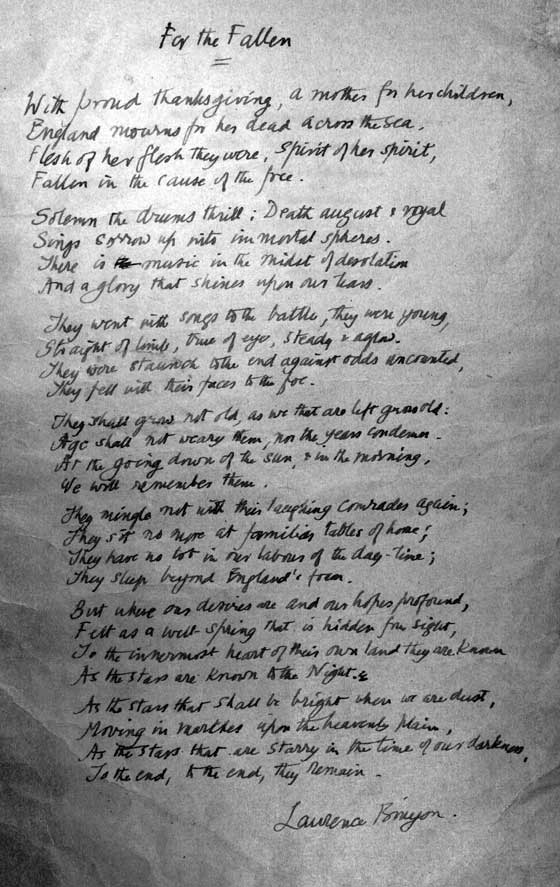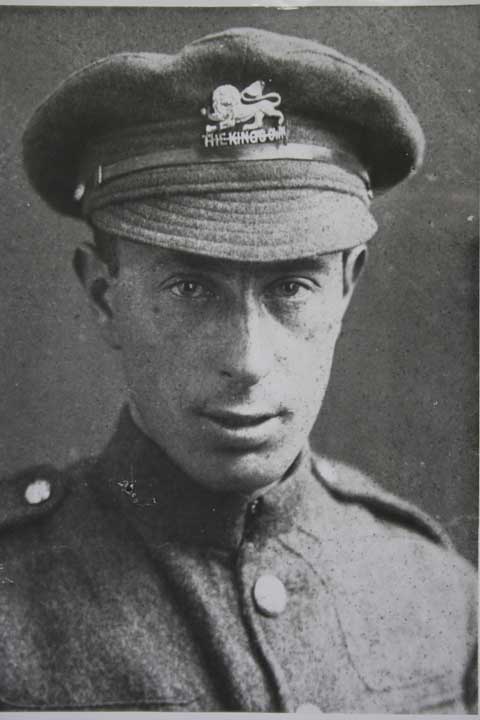 |
King's Own Royal Regiment Museum Lancaster |
|
|
HOME Museum & Collections Sales Donations Events Contact Us REGIMENTAL HISTORY 17th Century 18th Century 19th Century 20th Century First World War Second World War Actions & Movements Battle Honours FAMILY HISTORY Resources Further Reading PHOTO GALLERY ENQUIRIES FURTHER READING LINKS
© Images are copyright, Trustees of the King's Own Royal Regiment Museum. |
WAR! 1914 Lancaster and The King's Own go to War. Generously supported by the Sir John Fisher Foundation. Laurence Binyon Laurence Binyon was born on 10th August 1869 in High Street,
Lancaster, the son of a minister. For the first ten years of his life he
lived in the local area, including in Burton in Lonsdale and his first
poem was inspired by his view of Ingleborough. He studied at Oxford,
graduating in 1893. Laurence Binyon died at Aldworth, Berkshire, on 10th March 1943.
Binyon was in correspondence with Private Isaac Rosenberg, the war poet who served with the 11th and 1st Battalions of the King’s Own Royal Lancaster Regiment, and who was killed in action on 1st April 1918. Rosenberg has been described by some as the greatest of all the war poets. Binyon wrote an introductory memoir to the first edition of The Collected Poems of Isaac Rosenberg, edited by Gordon Bottomley in 1922.
© Images are copyright, Trustees of the King's Own Royal Regiment Museum. Only a proportion of our collections are on display at anyone time. Certain items are on loan for display in other institutions. An appointment is required to consult any of our collections which are held in store. |


